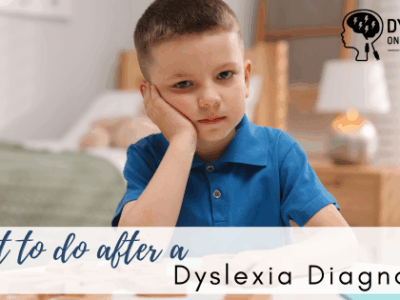The Special Education Process: The Real Truth
The Special Education Process: The Real Truth
Do you suspect your child is dyslexic? Ready to find out so we can get he or she the much-needed intervention and accommodations for success? Buckle in because it is time to take a ride on the Special Education Process EXPRESS! Many parents avoid buying their tickets, but there is nothing to fear! Not only do they have HUGE federal protections on this ride, but it isn’t scary once you understand where you are going and how we are getting there!
This is my specialty area. Before becoming a Certified Academic Language Therapist, I accrued too many years of experience in the public schools in special education as a both a teacher/specialist and campus coordinator. I taught most every classroom from Life Skills and Autism units to Resource and spent hours on the OTHER side of the tables in copious ARD meetings. You can say I have perspective. Now, I am so fortunate on having this experience to help coach parents on what to do on THEIR side of the table.
Now let’s START with a small snippet about whether or not this dyslexia diagnosis should fall under 504 or Special Education. This is enough for an entire BLOG entry in itself, so just take my word that it needs to be Special Education. Period. Do not allow your school to try and pursue dyslexia testing via 504. Trust me on this one. Your rights and the rights of your child are at stake.
So, this brings us BACK to Special Education. If you are concerned about your child having dyslexia, you will need to march your little booty into the school and request, in writing, that the school does a Full Individual Evaluation (F.I.E.) because you are concerned, specifically, about dyslexia. Also, I forgot to mention to start taking notes because, like any good bureaucratic system, there are a TON of acronyms AND timelines. For good measure, I would either hand that letter or send that email directly to the principal to make sure it is done. This is not a “mention it to the teacher” type of situation. Just you know, as soon as your John Handcock hits the official request letter, the school officially has 15 days to provide you a written consent for the evaluation. Another signature needed. They also must then give you a big packet of papers that you will likely throw in a pile of “Ill read laters”. Just a heads up, that is a bunch of legalese telling you your rights.
Just remember this combo of numbers: 15 – 45 – 30. They have 15 SCHOOL days to get your signature of consent for testing, 45 SCHOOL days to COMPLETE that testing, and then 30 CALENDAR days after completing the evaluation to hold the ARD Meeting to review the results with you. I told you…more acronyms…. ARD stands for Admission, Review, and Dismissal and it is what we call all the Special Education Meetings. Oh…and you need at least 7 days written notice before that meeting happens.
Fast forward to as many as 93 calendar days, assuming no major bank or school holidays fall in there which would make it even more, you will find yourself in that ARD meeting waiting for your child to either be admitted into Special Education and an I.E.P. being created or not. More letters…. An I.E.P. stands for Individual Education Plan.
What does that ARD meeting look like? At a minimum, it looks like parents, administrators, evaluator, special education representation, and all professionals who typically work with your child in attendance. It looks like an intimidating cast of characters to a parent who is new to this process. Don’t be fooled. As the parent, regardless of “who knows what”, you have more power than everyone in that meeting. They never tell you that, though. Even if they don’t intend for it to be so, it is normally extremely daunting to parents and they tend to just trust the committee for that reason. I’m here to tell you the unspoken truths so that you don’t all trap.
Assuming the FIE determines that your child does, in fact, have dyslexia, make sure that the word is used. Just listing a Specific Learning Disability in reading is not sufficient. Those words CAN be used, as long as shortly after the characteristics exhibited are listed it says dyslexia. Trust me. This is important. The exact words will mean that many state specific dyslexia laws will then come into play. Many states then line out that the school must provide evidence-based, multisensory reading intervention. Don’t assume that your school KNOWS your state’s specific legislation. If they fail to provide this, you have a leg to stand in order to get what you need.
Your child’s new IEP, among many other things, will now designate his or her specific diagnosis, targeted accommodations and the amount of time allotted weekly or monthly to them in which they will receive targeted intervention. I won’t even start to talk about terms like Least Restrictive Environment (LRE), Assistive Technology (AT), or Free And Appropriate Public Education (FAPE). All super important terms, but again, those are for another blog. This one is just SPED 101…. And that means Special Education 101.
This is where it gets fun….expressing your opinion as a parent. In an ideal world, you walk into the meeting, love everyone there, feel that the team is choosing your child’s interests- regardless of financial implications – above their own, and you agree with the testing results, educational goals, servicing plans, and accommodations. AWESOME! Hate to break it to you, but this is OFTEN not the case. In fact, this is more frequently the case than you realize, but most parents hold their tongue and choose to go the “wait and see” route since they don’t know their rights and assume they just “don’t know anything.”
Guess what? Mama and Daddy Gut are a HUGE thing. Deep down, if you don’t agree with the testing results or what the school is proposing for services…or anything in his HUGE LEGAL DOCUMENT, don’t be scared to speak up and JUST SAY NO! Remember early in this blog when I told you that the parents have more power the collective other side of the table? That is still true 3 paragraphs later.
How do you just say no? DO NOT SIGN! Let me say that again… DO NOT SIGN!! As with most legal documents, if it does not have your signature, it is not a living and breathing entity. It is only as valuable as the paper it is printed on. And once your child is established in “the system” as a Special Education student, the school is going to do most everything that they can to “close” that document so that they can be in compliance with the state.
And this part is HUGE: if you disagree with the Full Individual Evaluation (F.I.E.) that the school completed, by law you have the right to an Outside Evaluation for FREE!! As in, an impartial, third party evaluator!! Do not miss your chance at this by signing the initial ARD paperwork since you are scared of the school representatives!! Trust me, it happens all the time…
What happens next? All decisions tabled until you guys hold ANOTHER meeting in which you try to come to a resolution. It means that the school meanwhile will be trying to come up with solutions to pacify you all by consulting with the big guns. I will warn you that schools typically never immediately hand over the keys to the castle. This could be a PROCESS, but typically by the 3rd meeting, a resolution happens. My best advice if you don’t agree first meeting? Bring in an advocate to help speed the process along!!
But don’t just take my word on it, study up the Individuals with Disabilities Education Act (I.D.E.A.)…more acronyms. Also, most of this is lined out in the Procedural Safeguards Handbook that you tossed into the junk mail pile!! Here are links to both.
https://www2.ed.gov/policy/speced/leg/idea/idea.pdf
https://sites.ed.gov/idea/files/modelform_Procedural_Safeguards_June_2009.pdf
I am also always here to help coach parents through what to do and how to do it. Every child with dyslexia deserves the shot at the same educational experience as all of their peers REGARDLESS of what state you reside in.












